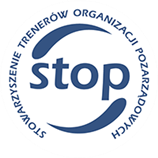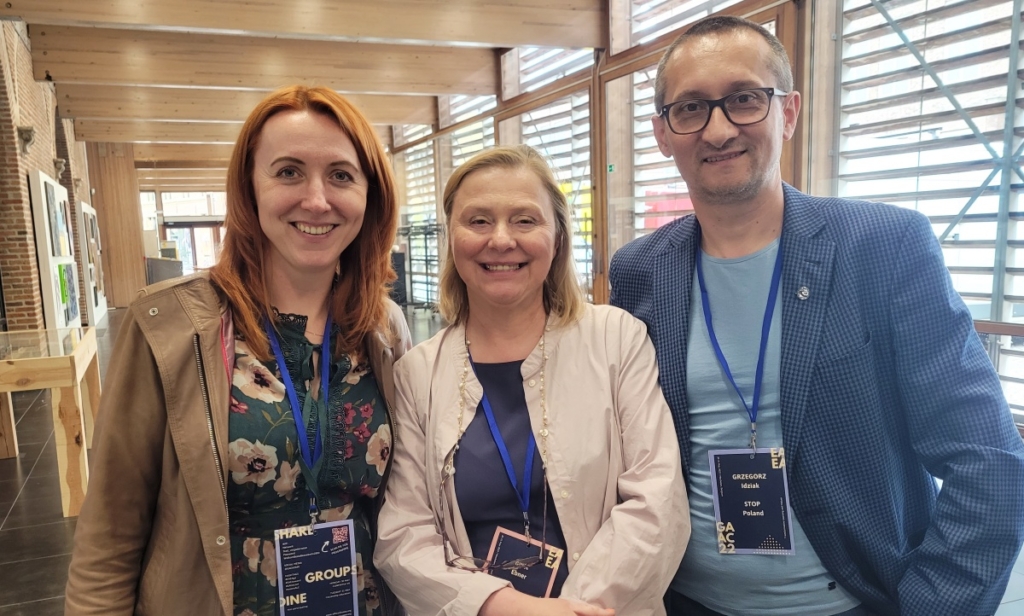Transformative learning – about a broader view of adult education
At the end of May 2022, as representatives of the STOP Board, Anna Skocz and Grzegorz Idziak took part in a conference on adult education entitled Transformative Learning and Values organised by the European Association of Adult Education – live – in Mechelen, Belgium, which was attended as a part of the Erasmus+ project Competent and open-minded trainers on the European market 2.
After 2 years of experiencing the pandemic and all the losses, complications and fears associated with it, the conference tried to look back and look at adult learners in this uncertain world. And the conclusion is one. Adults learning and preparing adults to function better in the labour market is a paradigm that needs to be broadened, because looking at adults from the level of better employees is a perspective that is far too narrow, ignores human potential and does not work in the face of the challenges of the modern world, i.e. pandemics or climate change.
In the current world, we need adults who are prepared to live in a complex and changing world, who are competent to deal with unpredictability, who understand themselves and others better, who think critically, who are less self-centred, who think broadly and more socially, who are open, inclusive and just, because it is only with these values that we can pass through the pitfalls of modernity and difficult times such as the last years unscathed.
- EPALE discussion: Transformative learning and life skills – discussion moderated by Gine Ebner and Christina Cieslak of EAEA, participants George A. Koulaouzides and Suzanne Kyle.
Transformative learning
The idea of transformative learning speaks of such education.
In general terms, “Transformative learning” is a term that includes changes in 3 dimensions:
- psychological (in understanding and developing the “self”)
- convictional (in the understanding of belief system)
- behavioural (changes in the level of behaviour and daily choices)
According to Jack Mezirow, an American professor at Columbia University, transformational learning occurs in the face of a “disorienting dilemma”, most often linked to a life crisis (because as humans we inherently dislike change and a crisis somehow forces change) or in the face of cumulative experiences, including those arising from the pedagogies and educational processes applied to us.
According to Mezirow, the capacity for critical reflection is the essence of adult learning, and the transformation and improvement of your emancipation is the goal of adult education.
Therefore, transformative learning is a much broader concept than knowledge-based education, shifting the centre of gravity towards attitudes and values.
George A. Koulaouzides, in an EPALE discussion, defines transformative learning as “a dialogical process of inspiration, contemplation, a reflection that can take us AWAY from an individualistic and egocentric understanding of self, others and the planet.” At the same time, EAEA experts emphasised that there are many more definitions in Europe and that we should mutually draw on them, as well as on good practices related to the implementation of transformative learning.
MORE INFORMATION:- Teoria uczenia się transformatywnego autorstwa Jack’a Mezirowa, Pleskot- Makulska Krystyna (2007), Rocznik Andragogiczny nr 14, str. 81-96
- Uczenie się dorosłych, Chmielecka M. (2019), Polish Journal of Continuing Education nr 4/2019, DOI: 10.34866/e9fc-7×67
- Jack Mezirow, Who Transformed the Field of Adult Learning ( Joe Levine, www.tc.columbia.edu)
- TRANSFORMATIVE LEARNING (Wikipedia)
Why is transformative learning important?
On the one hand, transformative learning talks about values, change and development, which, by definition, in the progressive world of “Western” culture, are accepted as goals and directions without reservation.
On the other hand, however, when we look at the challenges of the modern world, it is quickly apparent that being a good worker is not enough to avoid the uncontrolled spread of a virus, climate catastrophe, war or polluted air. Civic education, a conscious education that builds co-responsibility for society and the world (however pompously this sounds), is at the same time ESSENTIAL. It is not “optional”, “possible” or “useful”. We are facing events where, without community, working together and acting together, we will only lose. All of us.
What is the conclusion?
In planning educational processes, we should take values into account. We should change the current paradigm of educating good employees to a different one that promotes the development and education of people towards building an open, resourceful, cooperative (and therefore integrated) society in the face of challenges, where all human needs and identities are recognised, not only the one constituting our professional utility, where we recognise emotional, social, safety, development and co-responsibility needs, where we look more broadly, from a meta-level, through the lens of humanistic values and the value of the human individual, not through the prism of mere utility, celebrating the dictates of productivity.
This is the message I bring from the May conference.
How good that once again someone reminded me of the value of the human individual as such, not being a cog of productivity. How good it was to hear about values again.
Author: Anna Skocz
Translation from Polish: Anna Motwicka-Kaczor
Polish version: Uczenie transformatywne – o szerszym spojrzeniu na edukację osób dorosłych

Translation of educational material financed as part of Skrzydła dla STOP project from the funds received from NIW- CRSO under The Civil Society Organisations Development Programme for 2018-2030 CSODP (PROO).


